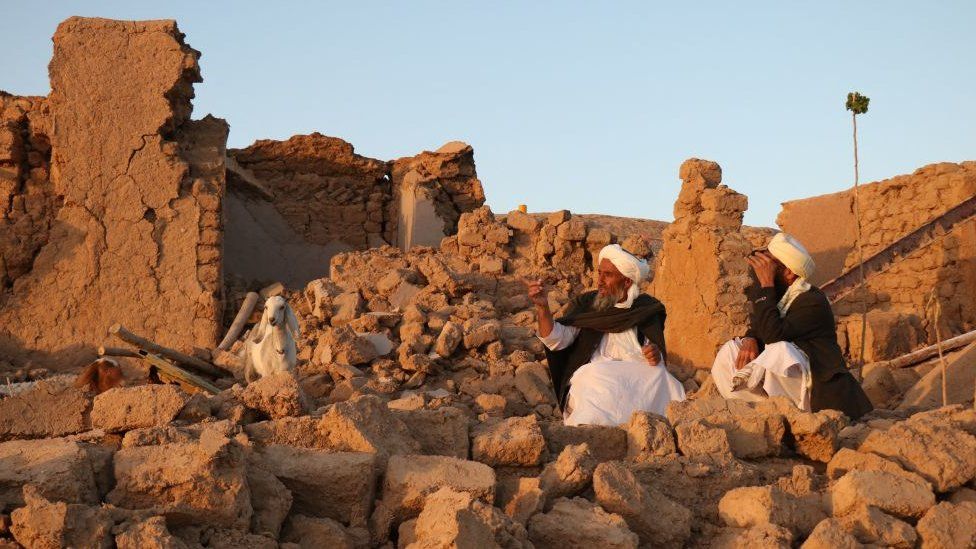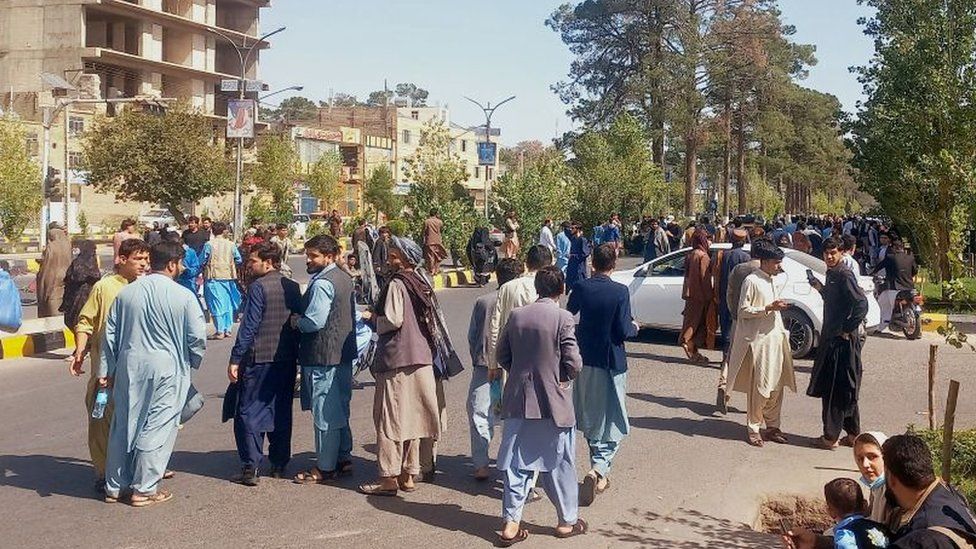
Hundreds of people are feared dead after a powerful earthquake hit western Afghanistan, near the Iranian border.
The death toll is expected to rise as information comes in from rural areas, with one Taliban government department suggesting it could be more than 2,000.
The 6.3 magnitude quake devastated at least 12 villages near the city of Herat on Saturday.
There were powerful aftershocks. Survivors described their terror as buildings collapsed around them.
Thousands of people have been injured. In a country with sorely inadequate medical facilities, hospitals are struggling to treat the injured. The UN and other organisations have begun to rush in emergency supplies.
The earthquake struck about 40km (25 miles) north-west of Herat at around 11:00 local time (06:30 GMT) on Saturday.
The worst affected communities are remote and consist of mud structures. “In the very first shake all the houses collapsed,” Herat resident Bashir Ahmad, whose family lives in the one of the villages, told AFP news agency.
“Those who were inside the houses were buried,” he added. “There are families we have heard no news from.”
The Taliban public health minister is visiting Herat to assess the scale of the impact. The World Health Organization (WHO) said at least 465 houses had been flattened.

Footage from Herat Central Hospital showed casualties linked up to intravenous drips being treated outside the main building – a sign of the sudden and overwhelming demand for emergency treatment.
Other pictures show scenes of devastation in Herat’s Injil district where rubble blocked roads, hampering rescue efforts.
“The situation was very horrible, I have never experienced such a thing,” student Idrees Arsala told AFP. He was the last to safely evacuate his classroom after the quakes began.
Herat is located 120km (75 miles) east of the Iranian border and is considered to be the cultural capital of Afghanistan. An estimated 1.9 million people are believed to be living in the province.
Afghanistan is frequently hit by earthquakes – especially in the Hindu Kush mountain range as it lies near the junction of the Eurasian and Indian tectonic plates.
In June last year, the province of Paktika was hit by a 5.9 magnitude quake which killed more than 1,000 people and left tens of thousands homeless.
